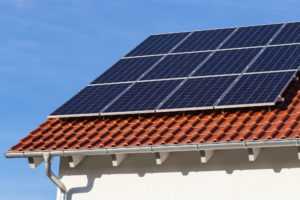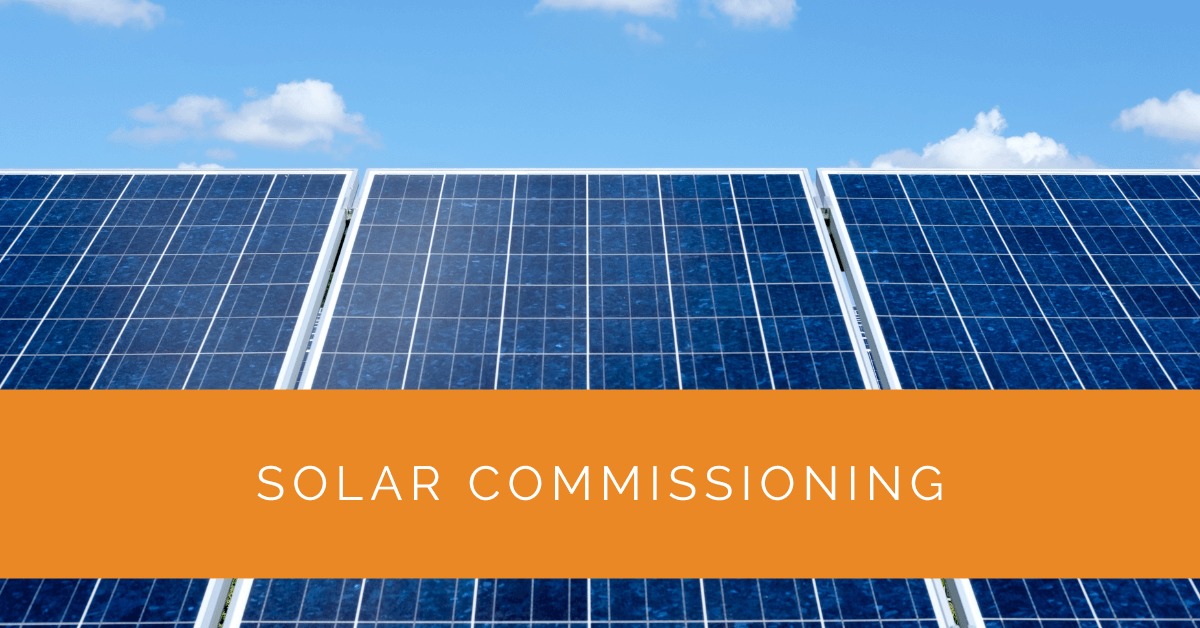Solar power has emerged as a reliable and sustainable energy source, and installing photovoltaic (PV) systems has gained significant momentum. However, installing solar panels is not enough to guarantee optimal performance and long-term success. This is where solar commissioning comes into play.
Contents
- 1 Key Takeaways
- 2 Understanding Solar PV Systems
- 3 Pre-Commissioning Steps
- 4 PV System Commissioning Process
- 5 Grid Interconnection and Utility Approval
- 6 Common Challenges and Troubleshooting
- 7 Maintenance and Monitoring
- 8 Case Study: Ensuring Optimal Performance Through Comprehensive Solar Commissioning
- 9 Expert Insights From Our Solar Panel Installers About Solar Commissioning
- 10 Experience Solar Excellence with Us!
- 11 Conclusion
Key Takeaways
- Solar commissioning is crucial for ensuring the successful integration and optimal performance of a photovoltaic (PV) system.
- Proper system design, quality assurance, and equipment verification are essential pre-commissioning steps.
- The commissioning process includes installation, testing, performance evaluation, grid interconnection, troubleshooting, and ongoing maintenance and monitoring for long-term efficiency and reliability.
Understanding Solar PV Systems
To grasp the intricacies of solar commissioning, it’s vital to have a comprehensive understanding of solar PV systems and their various components. A PV system comprises multiple elements that harness sunlight and convert it into electricity. These components typically include solar panels, inverters, mounting racks, wiring, and other supporting equipment.
A deeper exploration of solar PV systems reveals the significance of system design in optimizing performance and power output. Factors such as panel placement, module orientation, voltage considerations, and shading analysis are carefully assessed during the design phase. By considering these aspects, system designers can ensure maximum energy production and efficient utilization of the available solar resource.
Pre-Commissioning Steps
BeforeBefore embarking on the commissioning process, crucial steps need to be taken to set the stage for a successful outcome. Thorough planning and documentation are essential to manage the solar project effectively. This includes establishing project timelines, creating budgets, and allocating resources accordingly. Comprehensive quality assurance measures should also be implemented to guarantee that the installation and components meet industry standards and manufacturer specifications.
One of the critical pre-commissioning steps is equipment procurement and verification. It involves procuring reliable and high-quality solar panels, inverters, and other necessary components from trusted suppliers. Rigorous verification of the authenticity and performance of the equipment helps mitigate the risk of potential issues and ensures the long-term reliability of the solar PV system.

PV System Commissioning Process
The PV system commissioning process involves a series of sequential steps to ensure the solar installation’s functionality, safety, and performance. Each step contributes to the seamless integration and optimal operation of the system.
System Installation and Wiring
The first step in the commissioning process is installing the solar PV system. Qualified and certified installers ensure a proper installation that adheres to industry best practices. This includes securely mounting the solar panels on the designated racks, making accurate electrical connections, and establishing the necessary wiring connections.
Testing and Verification Procedures
Once the installation is completed, comprehensive testing and verification procedures are carried out to assess the system’s performance. This includes checking the electrical continuity, measuring voltage and current outputs, and evaluating the overall system functionality. Any discrepancies or deviations from expected values are meticulously identified and addressed during this phase.
Performance Evaluation and Analysis
After successful testing and verification, the performance evaluation and analysis phase begins. It involves monitoring the power output of the solar panels under various weather conditions and comparing it with the expected values. In-depth analysis helps identify inefficiencies, shading issues, or module malfunctions that may impact the overall system performance. By thoroughly assessing and analyzing the system’s performance, necessary adjustments and optimizations can be made to maximize energy production.
Grid Interconnection and Utility Approval
For solar PV systems connected to the grid, obtaining utility approval and ensuring proper interconnection is crucial. Compliance with local regulations, electrical codes, and utility interconnection requirements is necessary to ensure seamless integration with the electrical grid. This includes submitting the necessary documentation, conducting inspections, and obtaining the required permits and approvals.
The utility inspection process typically involves thoroughly examining the system to ensure compliance with safety standards and electrical codes. Inspections may focus on the interconnection equipment, electrical panels, wiring, and overall system functionality. Once the system successfully passes inspection, it is approved for grid interconnection, allowing the solar PV system to export excess electricity to the grid.

Common Challenges and Troubleshooting
During the commissioning process, it is not uncommon to encounter challenges that require troubleshooting and problem-solving. Issues like wiring faults, incorrect voltage levels, or module defects may arise. Certified commissioning agents and installers possess the expertise to promptly identify and rectify such challenges, ensuring that the system operates optimally.
Moreover, mitigation strategies can be implemented to enhance the system’s overall performance. This may involve implementing shade management techniques, optimizing the rack layout for maximum sunlight exposure, and integrating monitoring systems to facilitate proactive maintenance. Regular inspections and preventive measures help mitigate potential risks and ensure the long-term efficiency and reliability of the solar PV system.
Maintenance and Monitoring
Commissioning is not the endpoint of solar system management; it marks the beginning of ongoing maintenance and monitoring. Regular maintenance activities, such as inspections, cleaning of solar panels, and checks on the electrical system, are essential to identify any degradation or issues that may affect the system’s performance.
Furthermore, performance monitoring and data analysis are vital in tracking the system’s performance over time. Real-time monitoring systems provide valuable insights into energy generation patterns, enabling timely corrective actions and maximizing the system’s overall efficiency. By continuously monitoring the performance and promptly addressing any deviations or anomalies, the solar PV system can operate at its full potential for years.
Case Study: Ensuring Optimal Performance Through Comprehensive Solar Commissioning
Background
At Solar Panels Network USA, we emphasize the importance of solar commissioning to ensure the highest performance and reliability of photovoltaic (PV) systems. One of our recent projects involved a commercial client seeking to install a large-scale solar PV system. This case study highlights our comprehensive approach to solar commissioning and the resulting benefits for the client.
Project Overview
The client, a manufacturing company with a substantial energy demand, aimed to reduce operational costs and their carbon footprint by installing a solar PV system. Given the scale of the installation, it was crucial to ensure the system’s efficiency and reliability from the outset. We proposed a thorough commissioning process to guarantee optimal performance.
Implementation
Pre-Commissioning Steps
- Project Planning and Documentation: We began with detailed project planning, establishing clear timelines, budgets, and resource allocation. Comprehensive quality assurance measures were implemented to align the installation with industry standards and manufacturer specifications.
- Equipment Procurement and Verification: High-quality solar panels, inverters, and other essential components were sourced from reputable suppliers. Rigorous verification processes were conducted to confirm the authenticity and performance of each component, ensuring the system’s long-term reliability.
Commissioning Process
- System Installation and Wiring: Our certified installers securely mounted the solar panels and made precise electrical connections, adhering to best practices for safety and efficiency. Proper installation was critical to prevent future issues and ensure optimal performance.
- Testing and Verification: Post-installation, we performed extensive testing and verification procedures. This included checking electrical continuity, measuring voltage and current outputs, and evaluating overall system functionality. Any discrepancies were promptly identified and rectified.
- Performance Evaluation and Analysis: We monitored the system’s power output under various conditions, comparing it with expected values. This analysis helped us identify and address any inefficiencies or module malfunctions, optimizing the system for maximum energy production.
- Grid Interconnection and Utility Approval: Ensuring compliance with local regulations, we facilitated the necessary documentation and inspections for grid interconnection. The system successfully passed utility inspections, allowing it to export excess electricity to the grid.
Results
- Enhanced Energy Generation: The comprehensive commissioning process ensured the system operated at peak efficiency, resulting in substantial energy generation. The client experienced significant reductions in their electricity bills, enhancing their return on investment.
- Increased Reliability: By addressing potential issues during commissioning, we ensured the system’s reliability and longevity. Regular maintenance and monitoring have kept the system performing optimally, providing consistent energy savings.
- Environmental Impact: The successful installation and commissioning of the solar PV system significantly reduced the client’s carbon footprint, aligning with their sustainability goals and enhancing their corporate image.
Summary
This case study underscores the critical role of solar commissioning in achieving optimal performance and reliability of PV systems. Through meticulous planning, detailed testing, and ongoing maintenance, Solar Panels Network USA ensured the client’s solar installation met and exceeded performance expectations. The results highlight the importance of commissioning in maximizing energy production, reducing costs, and contributing to a sustainable future.
Expert Insights From Our Solar Panel Installers About Solar Commissioning
Commissioning is the backbone of a successful solar installation. It ensures every component functions correctly and meets the designed performance metrics. Without it, the efficiency and longevity of a PV system can be significantly compromised.
Lead Solar Installer
Proper commissioning involves meticulous attention to detail, from testing electrical connections to verifying system performance under various conditions. This process is vital for optimizing energy output and ensuring long-term reliability.
Solar Commissioning Specialist
Troubleshooting during commissioning can uncover potential issues early on, preventing future failures. It’s a proactive step that saves time and money in the long run.
Senior Solar Technician
Experience Solar Excellence with Us!
Trust in Solar Panels Network USA, where our seasoned experts deliver top-quality solar solutions for homes and businesses nationwide. With a legacy of countless successful installations and a commitment to sustainable energy, we’re your reliable partner in the solar journey. Ready for a brighter, eco-friendly future? Call us now at (855) 427-0058 and harness the power of the sun!
Conclusion
Solar commissioning is a critical process that ensures a photovoltaic system’s seamless integration and optimal performance. By following the pre-commissioning steps, executing a comprehensive commissioning process, and addressing common challenges, solar PV systems can operate reliably, generate maximum power output, and contribute to a sustainable future. Regular maintenance and monitoring further enhance the system’s longevity, making solar energy a viable and efficient choice for a clean energy future.
Remember to consult certified professionals to commission your solar PV system and ensure compliance with local regulations and industry standards.
About the Author
Solar Panels Network USA stands at the forefront of solar energy solutions, driven by a team of seasoned solar engineers and energy consultants. With over decades of experience in delivering high-quality solar installations and maintenance, we are committed to promoting sustainable energy through customer-centric, tailored solutions. Our articles reflect this commitment, crafted collaboratively by experts to provide accurate, up-to-date insights into solar technology, ensuring our readers are well-informed and empowered in their solar energy decisions.

